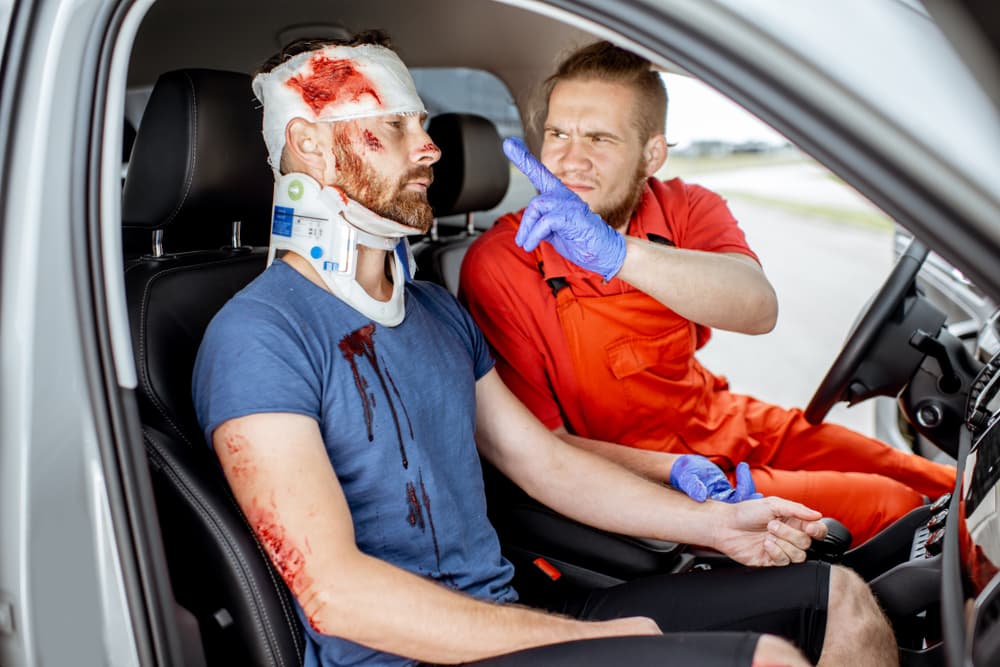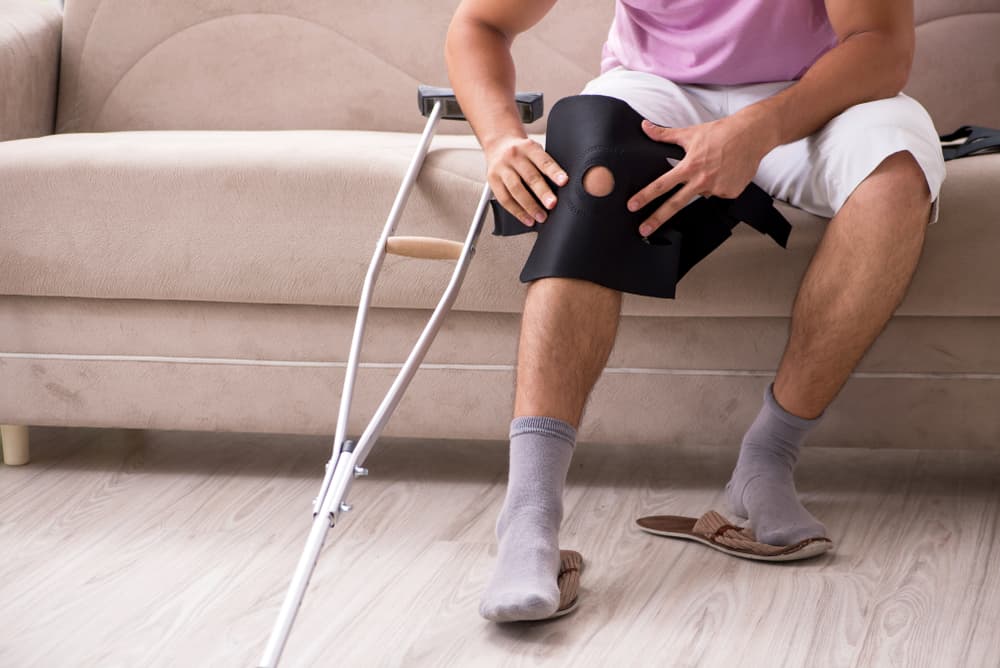When other drivers and premises owners behave irresponsibly, serious accidents and injuries can occur. If you suffered injuries in one of these accidents, you may be entitled to recover compensation for your losses.
Usually, your personal injury lawyer will be dealing with the insurance company for the at-fault party. However, in most scenarios, insurance companies make low settlement offers – at least at the onset. As the accident victim, you are the one who decides whether to accept or reject a particular insurance company settlement offer.
You have the right to refuse an insurance company’s offer.
If you reject the offer, then your lawyer can make a counteroffer and continue the negotiation process on your behalf. Alternatively, they may determine that litigating your case in the court system is in your best interests.
An experienced Edmonton car accident lawyer can be an invaluable asset throughout your case and can help you make important decisions, including whether to accept or reject a settlement offer or litigate your case in court. Your lawyer can also estimate the likely settlement or verdict value of your case so that you can make informed decisions throughout the process.
Types of Accidents that May Result from Others’ Negligent Behavior
Car accidents and premises accidents can occur due to another person’s negligence, leading to various consequences for those involved. One common type of auto accident is the rear-end collision, where a driver speeds or fails to maintain a safe following distance, resulting in them striking the front vehicle. This often happens at intersections or in heavy traffic, causing injuries like whiplash.
Side-impact collisions, also known as T-bone accidents, occur when a vehicle is struck on the side. These can happen at intersections, and the severity of injuries depends upon the point of impact. Negligence in obeying traffic signals or failing to yield the right-of-way often contributes to these crashes.
Additionally, rollover accidents may happen due to factors like high-speed turns or abrupt driving maneuvers. Negligence in vehicle maintenance, road design issues, or manufacturing defects can also play a role in these serious accidents, leading to severe injuries or fatalities.
Premises accidents, on the other hand, encompass a range of incidents that occur on someone else’s property. Slip and fall accidents are common and may arise from wet floors, uneven surfaces, or inadequate warning signs. Negligence in maintaining a safe environment can sometimes be a contributing factor.
Similarly, inadequate security measures may lead to accidents such as assaults or robberies on someone’s property. Property owners failing to address known security issues may be held responsible for resulting injuries.
Dog bites represent another form of premises-related accident, where the negligence lies in the owner’s failure to control their pet properly. This type of incident can result in physical injuries and emotional distress for the victim.
Moreover, structural issues like collapsing stairs or railings can lead to accidents, highlighting the importance of regular property maintenance. Negligence in addressing these concerns poses a risk to individuals on the premises.
Both auto accidents and premises accidents stemming from negligence can have significant consequences. Understanding the various types of incidents and their causes is crucial for promoting safety and holding responsible parties accountable.
Common Injuries in Auto Accidents and Premises Accidents

Negligence on the road or premises often results in a variety of injuries, each with its own set of challenges. One of the most prevalent injuries in auto accidents is whiplash, caused by the sudden back-and-forth motion of an accident victim’s head during a collision. This can lead to headaches, stiffness, and neck pain, affecting the victim’s daily life.
Soft tissue injuries are also common, affecting muscles, ligaments, and tendons. These injuries may result in pain, swelling, and reduced range of motion. The recovery process can be long, sometimes affecting the accident victim’s ability to perform daily activities.
Another common injury is bone fractures, often occurring when the force of a car crash causes an accident victim’s bones to break. Fractures can vary in severity, from hairline fractures to more severe cases requiring surgery and extensive recovery. The effects on a victim’s mobility and overall well-being may also be considerable.
Premises accidents – including slip and falls – can lead to injuries like fractures, sprains, and strains. If a victim strikes their head on the floor or another hard surface, they may suffer a concussion or other traumatic brain injury (TBI). If they land on their back, they may suffer spinal cord damage, including full or partial paralysis. Victims may also experience pain, temporary disability, and emotional distress due to these incidents.
Injuries resulting from negligence on the road or premises can vary widely, affecting victims both physically and emotionally. From whiplash in auto accidents to slip and fall incidents on poorly maintained properties, understanding the common types of injuries is crucial. While you undergo the medical treatment you need for your injuries, a personal injury lawyer can begin gathering documents, investigating your case, and pursuing your claim for compensation.
Responding to a Low Settlement Offer from the Insurance Company
When faced with a low settlement offer from an insurance company in a car accident or premises accident case, a personal injury lawyer can employ various strategies to advocate for fair compensation.
- First, an experienced personal injury lawyer can engage in thorough research and gather compelling evidence to strengthen the accident victim’s case. This includes collecting medical records, accident reports, witness statements, and any relevant documentation that supports the extent of the victim’s injuries and damages.
- Communication becomes an important tool as the personal injury lawyer negotiates with the insurance company. Clear and persuasive communication is crucial in conveying the victim’s perspective and the true effect of the accident on their life. By articulating the specifics of the case confidently – and providing well-supported legal arguments – a skilled lawyer aims to convince the insurance company to reconsider their initial offer.
- In some instances, the lawyer may seek the assistance of various experts to bolster the case. This may involve consulting with medical professionals, accident reconstruction specialists, or other relevant experts who can provide expert opinions on the severity of injuries, long-term consequences, or the circumstances surrounding the accident. Expert testimony can also add credibility to the accident victim’s claims, potentially influencing the insurance company to review (and ultimately increase) their settlement offer.
- If ongoing negotiations don’t work, the lawyer may choose to file a lawsuit and take the case to court. Litigation provides a formal platform to present the evidence and arguments before a judge and jury.
- Throughout the process, an experienced lawyer may also explore alternative dispute resolution (ADR) methods, such as mediation or arbitration. These approaches offer opportunities for more informal negotiations and resolutions.
Responding to a low insurance company settlement offer involves a multi-step approach. Through diligent research, effective communication, expert collaboration, and, if necessary, legal action, a personal injury lawyer will work hard to secure the best possible outcome for the accident victim.
Steps Involved in Personal Injury Litigation
Personal injury litigation following a car accident or premises accident involves several essential steps, providing a structured path for individuals seeking compensation due to another party’s negligence. This path involves specific procedures, legal requirements, and timelines, making the right professional representation critical.
If settlement negotiations do not work, the next step involves filing a lawsuit in the court system. The personal injury lawyer prepares a formal complaint outlining the legal claims and serves it on the at-fault party, officially beginning the litigation process. The at-fault party (or defendant) responds with their version of events, marking the transition from informal settlement negotiations to formal legal proceedings.
Discovery is the next important stage, where both sides exchange information, evidence, and witness statements. Interrogatories, document requests, and depositions are tools used to gather information and build each party’s case. This phase aims to reveal the strengths and weaknesses of each argument, ensuring a fair legal process.
During these legal proceedings, the parties may also explore mediation or attend a settlement conference. These ADR methods offer chances to resolve the case outside of court. A neutral mediator facilitates discussions, and if an agreement is reached, it avoids the time and expenses associated with a trial.
For cases unresolved through negotiation or ADR, thorough trial preparation becomes crucial. The accident victim’s lawyer refines their legal arguments, prepares witnesses, and builds a trial strategy.
The trial represents the culmination of the litigation process. Both parties present their cases before a judge and jury. The personal injury lawyer introduces evidence, examines witnesses, and delivers legal arguments to establish liability and the extent of damages. The opposing party then has the opportunity to counter these claims, and the judge or jury deliberates before reaching a decision.
Navigating personal injury litigation requires experience and commitment from a skilled personal injury lawyer. From the initial consultation to the conclusion of a civil jury trial in court, each step plays an important role in achieving a fair outcome for injured individuals.
Recovering Favorable Damages in a Personal Injury Claim or Lawsuit
When victims pursue a claim or lawsuit following car accidents or premises accidents, they may seek various legal damages to address the physical, emotional, and financial losses they experienced.

One important category of damages is lost income and loss of earning capacity. In the aftermath of an accident, victims may be unable to work for a significant amount of time (and sometimes permanently), leading to income loss. This includes not only the actual income which the victim missed during their recovery but also potential future earnings resulting from long-term disabilities or impairments (such as full or partial paralysis injuries). It is essential for victims to seek compensation for both their current and anticipated financial setbacks.
Pain and suffering represent non-economic damages that injured accident victims may recover in a personal injury case. This category acknowledges the emotional and physical distress that the victim experienced due to their accident, including pain, discomfort, anxiety, and loss of enjoyment of life. Assigning a monetary value to such intangible losses aims to address the human toll of the incident.
In cases of permanent disability or disfigurement (such as from scarring), victims can pursue damages for the lasting effects on their lives. Compensation accounts for the physical and emotional consequences of permanent injuries, recognizing the ongoing challenges that individuals may face.
Loss of consortium is a unique category of damage that is applicable in some cases and addresses the effect of various injuries on relationships. Spouses or family members may seek compensation for the loss of companionship, support, and intimacy resulting from the victim’s injuries.
Finally, punitive damages may be available under certain circumstances. These damages aim to punish the at-fault party for egregious behaviour, such as intentional misconduct or gross negligence. While not as common as other types of damages, punitive awards serve as a deterrent and may be available when the defendant’s actions warrant such consequences.
Victims of car accidents and premises incidents can pursue damages in their personal injury claims or lawsuits. From lost income to pain and suffering to compensation for permanent disabilities, the ultimate goal of monetary damages is to address the overall effect of the occurrence on the accident victim’s life. Understanding these categories allows victims to seek comprehensive compensation that reflects the full extent of their accident-related losses.
Contact an Experienced Personal Injury Lawyer Right Away

Following an auto accident or premises accident that resulted from someone else’s negligent behaviour, victims typically have just two years to file a lawsuit in the court system seeking damages. Otherwise, the court may prevent them from recovering the settlement or litigation compensation they need to become whole again.
If you sustained injuries in an auto accident or premises accident that resulted from someone else’s negligence, a Edmonton personal injury lawyer can handle all communications with insurance company representatives on your behalf and advocate for your interests during the settlement-negotiation process. If the insurance company refuses to offer you favourable compensation, then your lawyer can review your litigation options and bring your case to an efficient conclusion in the court system.
